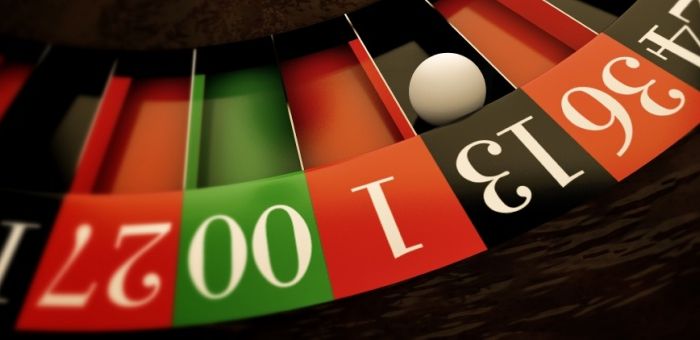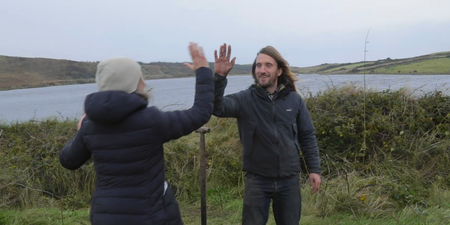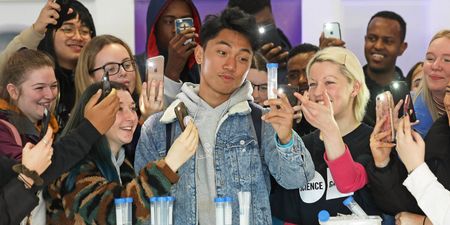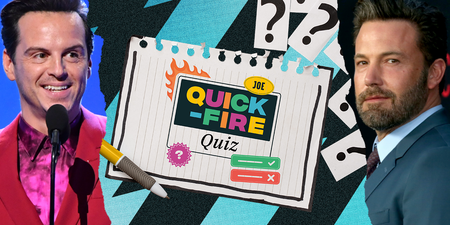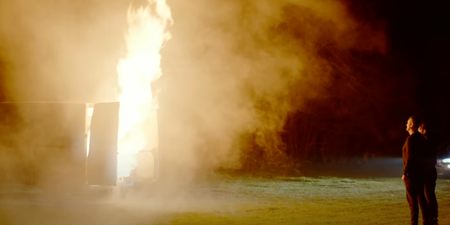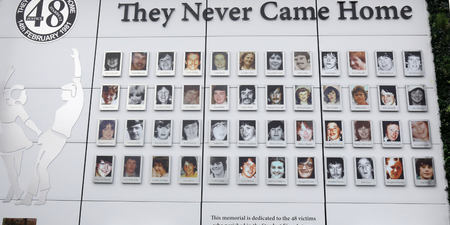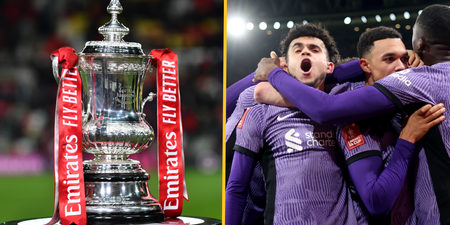It’s Science Week!
And what good is science unless we can use it to our advantage, eh?
JOE spoke with Dr. Adrian O’Hagan, lecturer in Statistics and Actuarial Science from the UCD School of Mathematics and Statistics, to find out all about how we can use numbers to our advantage when it comes to the lottery or betting with the bookies (responsibly, of course).
JOE: Are certain numbers lucky or unlucky?
Adrian: This is one that usually comes up when people talk about the lottery. The number 13 always provokes a strong reaction, but if you ask a statistician they’ll say the numbers aren’t lucky or unlucky unless they themselves are superstitious.
Think of lotto numbers, they are just symbols. You could run the lottery and have pictures of animals and it would be the same format, but people wouldn’t really have this association of the symbols being lucky or unlucky.
https://www.youtube.com/watch?v=aU4pyiB-kq0
Clip via MrRiggyRiggs.
People also have superstitions when it comes to the lottery and birthdays. By choosing birthdays, people limit themselves to the numbers 1 to 31. Any set of 6 numbers, even limited to those between 1 and 31, is as likely to win as any other set of 6 numbers. But if somebody wins with this system, there’s a greater chance that they’ll be sharing the winnings with more people, because many people use the birthday system. So selections like this have less value.
A few years ago, six different people won the jackpot because they’d all made an L-shape with their numbers on their lotto ticket.
JOE: Does the bookie always win?
Adrian: Not always in individual cases, but in the long, long run the bookie will always win. The reason for that is that the bookies pad the odds. On average, the bookies pay out around €90 for every €100 taken in. Bookies work out the odds of an event – but those aren’t the odds they’ll offer. Something that’s really 7-1 becomes 6-1. Even if the punter is correct, the punter isn’t getting paid in line with probability. During the last papal election, Paddy Power had Father Dougal Maguire at 1000-1 when the reality is that such an outcome was next to impossible.
Bookies control the odds, so they can also reduce the odds to discourage further betting when there’s a run on something likely to happen. Lastly, bookies have the advantage of many bets being offset by people betting on the opposite outcome.
JOE: So is there any real system to beat the bookies?
Adrian: Sometimes the bookies make mistakes, for example they might price the event incorrectly, and a wise punter will have an edge. This is a lot more likely to happen in niche sports. Bookies will have huge teams tasked with modelling the prices for popular sports but for niche sports like lacrosse and European basketball, the odds are formulated more crudely. You need to know more than they do.
JOE: So what is the best sport to bet on?
Adrian: Betting is a game of information, so the sport you should be betting on is the one you know most about – especially if the bookies don’t know very much about it. If you know a lot about a popular sport, maybe brush up on your knowledge of lower leagues in foreign countries. It’s almost impossible to continually outsmart the bookies though, so it makes a lot of sense to be wary.
JOE: So how much should we stake on any given bet?
Adrian: The rule that most pros follow is not to gamble more than 3-5% of their stash on a single bet. After all, if you have odds of 7-1 on a horse winning, that suggests that on average the race would have to be run eight times for your horse to win once. Betting something like 30% of your stash on any one event is rarely a smart move, unless you’re betting on something that’s very likely to happen.
Clip via funkster373.
Science Week takes place from 8-15th November 2015. This is Science Week’s 20th birthday, and the theme for this year is Science Week 2.0 – Design Your Future. Over the course of the week, there will be 800 events held nationwide, with a participating audience of 250,000. For events in your area, check out www.science.ie
Dr. Adrian O’Hagan can be found on Twitter at @DrAOHaganUCD
LISTEN: You Must Be Jokin’ with Aideen McQueen – Faith healers, Coolock craic and Gigging as Gaeilge
